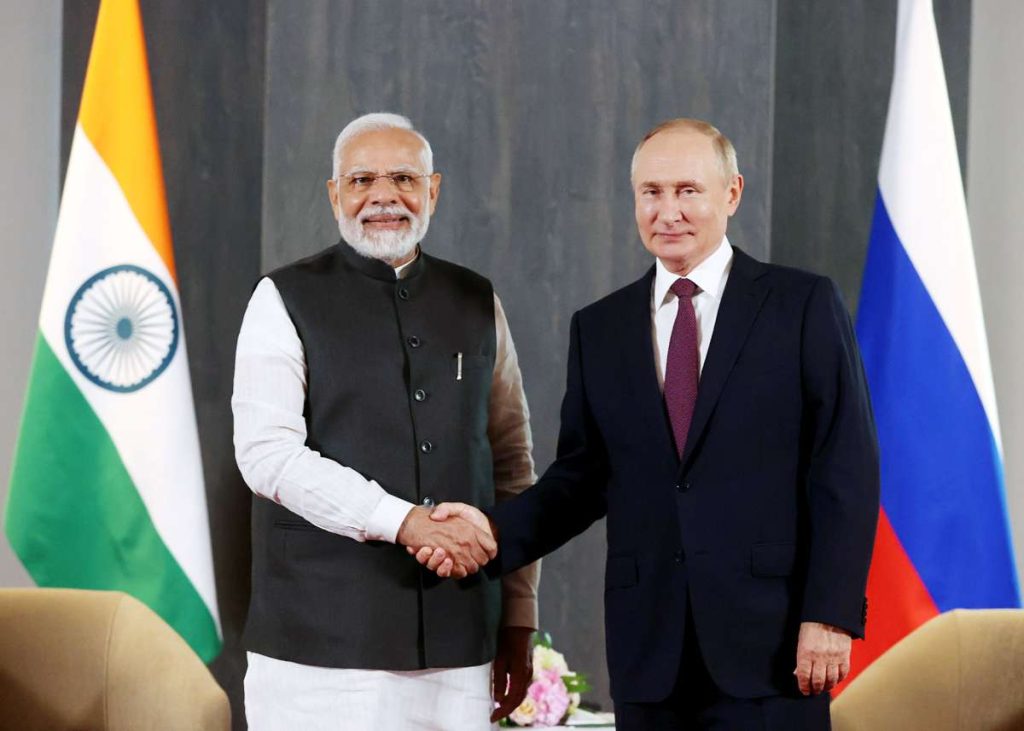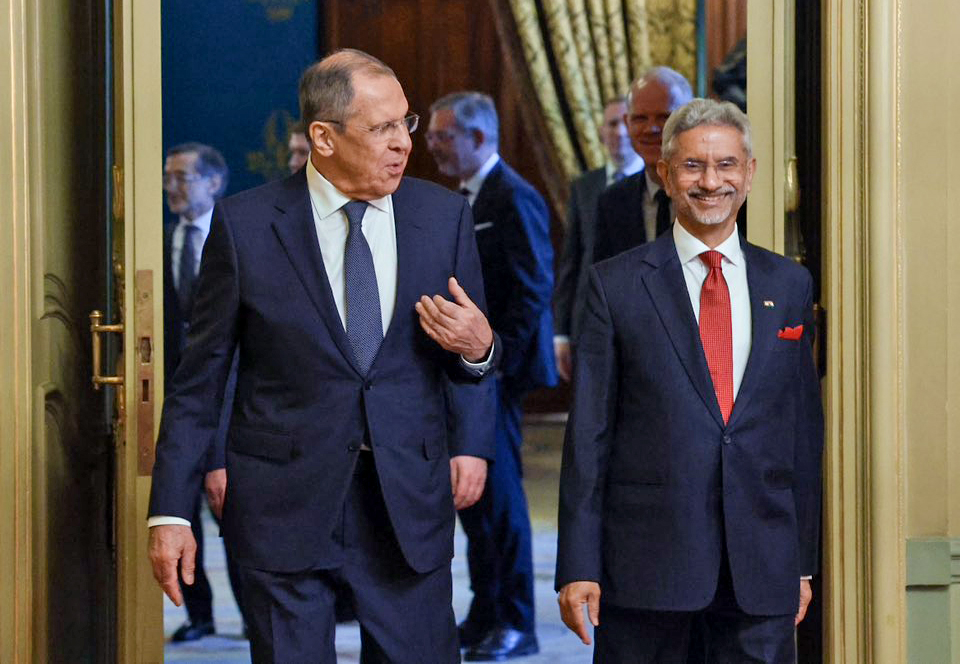Jaishankar says ties between New Delhi and Moscow remains very steady, and strong and is based on strategic convergence on geopolitical interests…reports Asian Lite News
Hailing the G20 communique under New Delhi’s presidency, Russian Foreign Minister Sergey Lavrov affirmed Moscow’s support for India’s candidacy as a permanent member of the United Nations Security Council.
He said that the New Delhi Declaration in September this year perfectly reflected the balance of interest of global powers.
“The G20 Summit in New Delhi that took place last year was truly a triumph for Indian foreign policy, the triumph for multilateral diplomacy, and it was possible primarily due to the chairmanship of G20. It didn’t allow the final communique to be one-sided, it reflects the perfect balance of interest,” Lavrov said while addressing the joint press conference with EAM Jaishankar in Moscow on Wednesday.
“This is an example of how G20 and other groups should be working and…this includes the UN and the Security Council. We support India’s candidacy for the Security Council,” he added.
He also said that taking note of multilateral cooperation, Russia supports India’s aspiration as a permanent UNSC member along with representatives of Latin America and Africa.
Speaking on the bilateral meeting between the two leaders, the Russian Foreign Minister further said that the two leaders discussed energy cooperation and piloted space programmes.
“We reaffirmed our aspiration to strengthen energy cooperation. This is a strategic area of our relations. We agreed on the expansion of exports of hydrocarbons to the Indian market as well as cooperation for peaceful use of nuclear energy. First of all, the implementation of the Karnakulam Nuclear Plant project. This is our practical contribution to India’s activities and work to satisfy its needs for clean and safe energy produced in the country,” Lavrov said.
He added, “We have a positive outlook for cooperation in piloted space programmes, as well as rocket engines, satellite navigation systems. We have also touched upon regional and international affairs”.
External Affairs Minister S Jaishankar, during his address, appreciated the India-Russia trade, which is at an all-time high, and said that the negotiations for a Free Trade Agreement between India and the Eurasian Economic Union will resume in January next year.
The Eurasian Economic Union is an economic union of five post-Soviet states located in Eurasia. The five member nations are; Russia, Armenia, Belarus, Kazakhstan, and Kyrgyzstan.
He further said that the relationship between New Delhi and Moscow remains very steady, and strong and is based on strategic convergence on geopolitical interests.
Putin invites Modi
Meanwhile, Russian President Vladimir Putin has extended an invitation to Prime Minister Narendra Modi to visit Russia next year. “We will be glad to see our friend, Prime Minister Modi in Russia,” Vladimir Putin said during a meeting with External Affairs Minister S Jaishankar at the Kremlin on Wednesday.
During PM Modi’s visit, “We will be able to discuss all the relevant, current issues and talk to the prospects of the Russian and Indian relationship,” Putin added.
Jaishankar also met with Russian Foreign Minister Sergey Lavrov.
During a joint media appearance, Jaishankar expressed confidence that Prime Minister Modi and President Putin would meet for their annual summit next year, highlighting the frequent contact between the two leaders.
The summit between the Indian Prime Minister and the Russian President is a key institutional dialogue mechanism in their strategic partnership, with 21 annual summits having taken place alternately in India and Russia.

The most recent summit occurred in New Delhi in December 2021.
Putin mentioned the growing trade turnover between Russia and India, attributing it to increases in crude oil and high technology areas. He noted the steady and higher growth rate in trade turnover for the second consecutive year.
Jaishankar is on a five-day Russia visit from December 25 to 29 as a part of the ongoing high-level exchanges between the two sides.
Earlier in the day, Jaishankar met Russian counterpart Sergey Lavrov and held discussions on a wide range of global issues including the Indo-Pacific, the Ukraine conflict as well as Gaza.
The meeting resulted in the signing of significant agreements related to the construction of power-generating units at the Kudankulam nuclear power plant in Tamil Nadu.
The two leaders also discussed progress in economic cooperation, connectivity efforts, military-technical cooperation and people-to-people exchange. Jaishankar noted that ties between India and Russia reflect geopolitical realities, strategic convergence and mutual benefit.
In a post shared on X, Jaishankar stated, “A wide ranging and useful meeting with FM Sergey Lavrov of Russia. As strategic partners, discussed the international situation and contemporary issues. Exchanged views on Indo-Pacific, the Ukraine conflict, the Gaza situation, Afghanistan and Central Asia, BRICS, SCO, G20 and the UN. Noted the progress in our economic cooperation, energy trade, connectivity efforts, military-technical cooperation and people to people exchanges. Signed Protocol on Consultations for the period 2024-28. India-Russia relations reflect geopolitical realities, strategic convergence and mutual benefit.” (ANI)

